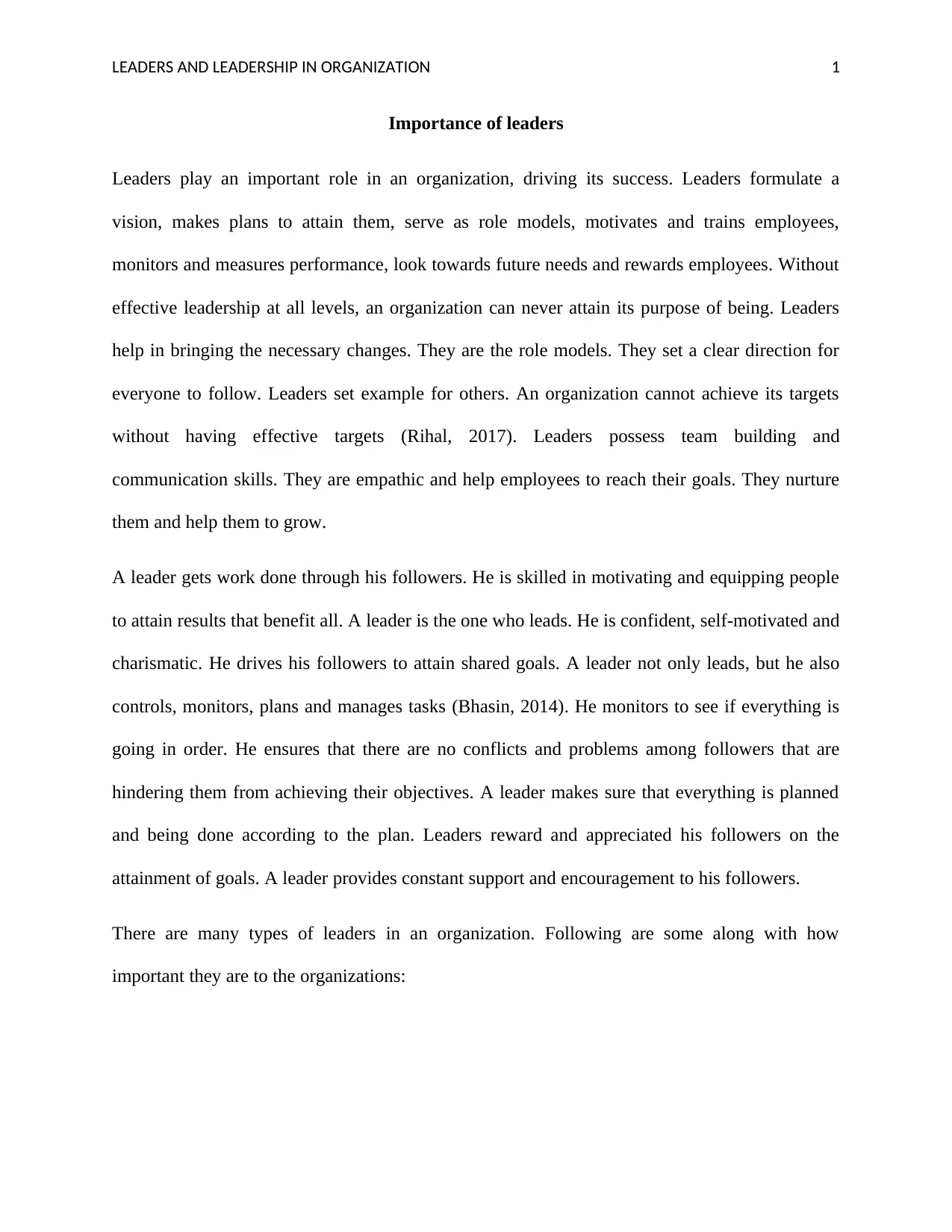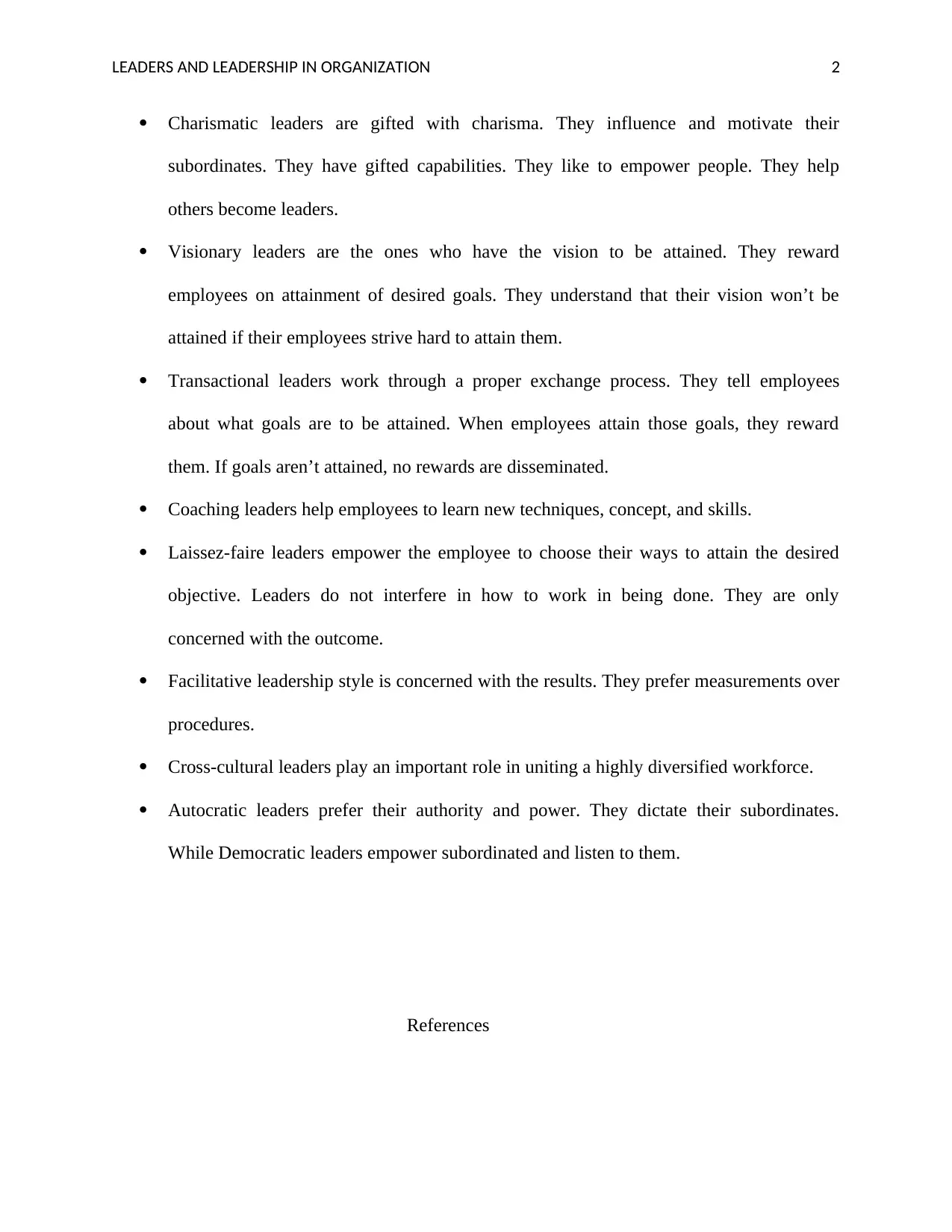Leaders, Leadership Styles, and Organizational Impact Report
VerifiedAdded on 2023/01/17
|3
|592
|31
Report
AI Summary
This report explores the critical role of leadership in organizations. It highlights how leaders formulate visions, motivate teams, and drive organizational success. The report details various leadership styles, including charismatic, visionary, transactional, coaching, laissez-faire, facilitative, cross-cultural, autocratic, and democratic, explaining their characteristics and impact on employees and organizational outcomes. It emphasizes the importance of leaders in setting examples, fostering teamwork, and achieving goals. The report also stresses the significance of rewarding employees and providing constant support. By understanding these diverse leadership approaches, organizations can improve performance, enhance employee engagement, and achieve their strategic objectives. The report concludes by underscoring the essential role of leadership in adapting to change and fostering a positive work environment.
1 out of 3










![[object Object]](/_next/static/media/star-bottom.7253800d.svg)